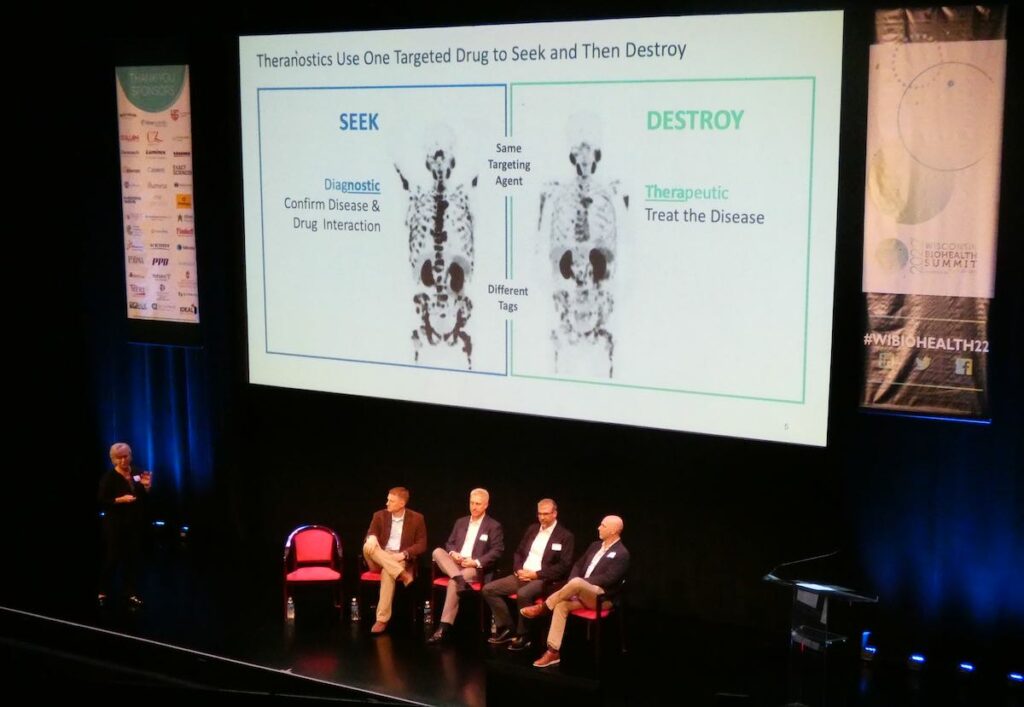Wisconsin is poised to make strides in theranostics, a growing field that centers around using the same drug to diagnose and treat disease by combining it with different types of radiation.
Sue Wallace, CEO for Madison-based Voximetry, a startup aiming to personalize treatment of advanced cancers, said there’s a trend of moving toward more targeted therapies for late-stage cancers, given some of chemotherapy’s downsides.
“This is where theranostics as a field lives,” she said at a panel during BioForward Wisconsin’s annual summit last week. “We’re trying to go more directly after those tumors that have spread everywhere in your body and still spare the other healthy tissue and organs. That’s the next level of improved cancer care.”
Theranostics can show how a drug could work for an individual patient, personalizing and optimizing care, Wallace said.
Dr. Zachary Morris, a professor at the University of Wisconsin School of Medicine and Public Health, said the state is “particularly strong in the field” due in part to the university, which has the top-rated medical physics program in the world.
“These things are done across the globe, but Wisconsin is a hot spot for theranostic development and research,” he said.
Chris Vessel, general manager of therapeutics at SHINE Medical Technologies in Janesville, said the field is exploding now due to the “evolution of research and clinical trials” as some drugs receive or near approval by the Food and Drug Administration. SHINE produces medical isotopes used for imaging.
“It’s really been fascinating in just the last literally two or three years to see this develop,” he said.
Vessel said the market demand is faster than what a lot of people can supply.
“It’s a good problem to have,” he said. “Fundamentally, it’s good for humankind.”
Corey Lawson, vice president of product strategy at Accuray, said Wisconsin is well-positioned to make a difference in the field.
Accuray, a California-based radiation therapy company, recently relocated “all operational aspects” to Wisconsin due to a talented workforce, similar companies and cheaper rent than Silicon Valley, he said.
“For us, Madison is a fantastic location,” he said.
Jaime McCoy, general manager of theranostics and radiotherapeutics at GE Healthcare, said the state is critical to their company. The global medical technology company employs around 6,500 in the state.
“It’s clear that the innovation needed to continue to advance this field will not be possible by any single entity, institution, business,” he said. “It’s only going to happen by really connecting across kind of one another, which is fantastic in Wisconsin.”
This article first appeared in the Wisconsin Health News daily email newsletter. Sign up for your free trial here.
